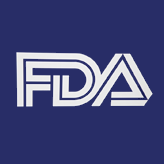FDA Approves Regorafenib (Stivarga) for GIST
The US Food and Drug Administration approved the multi-kinase inhibitor regorafenib (Stivarga) yesterday, for the treatment of patients with unresectable metastatic gastrointestinal stromal tumors (GIST) that no longer respond to imatinib and sunitinib.

The US Food and Drug Administration approved the multi-kinase inhibitor regorafenib (Stivarga) yesterday, for the treatment of patients with unresectable metastatic gastrointestinal stromal tumors (GIST) that no longer respond to imatinib (Gleevec) and sunitinib (Sutent).
“Stivarga is the third drug approved by the FDA to treat gastrointestinal stromal tumors,” said Richard Pazdur, MD, director of the Office of Hematology and Oncology Products in the FDA’s Center for Drug Evaluation and Research, in a press release. “It provides an important new treatment option for patients with GIST in which other approved drugs are no longer effective.”
Between 3,300 to 6,000 new cases of GIST are diagnosed in the United States each year, usually in adults, according to the National Cancer Institute.
The trial that led to the approval, the GRID trial, was a multicenter, randomized, double-blind study that included 199 patients from 17 countries with metastatic unresectable GIST whose disease progressed despite prior treatment with imatinib and sunitinib. Patients were randomized to receive either 160 mg regorafenib (n = 133) or placebo (n = 66).
Results on progression-free survival indicated that patients who received regorafenib had a median progression-free survival of 4.8 months (95% confidence interval [CI], 4.1–5.8) compared with 0.9 months for patients who received placebo (95% CI, 0.9–1.1). A 3.9-month increase.
Patients on the placebo arm of the trial were given the opportunity to switch to regorafenib if their cancer progressed. Rates of overall survival were not significantly different because of this crossover structure of the trial.
Serious adverse events occurred in less than 1% of patients treated with regorafenib in the study, and included severe bleeding, intestinal perforations, peeling and blistering of the skin, liver damage, extreme hypertension requiring emergency treatment, and heart attacks.
Common adverse events included stomach pain, weakness and fatigue, hypertension (49%), mouth sores, hand-foot syndrome (56%), diarrhea (41%), loss of appetite, weight loss, infection, changes in voice quality or volume, pain, rash, fever, and nausea.
Regorafenib was also approved in September 2012 to treat metastatic colorectal cancer.